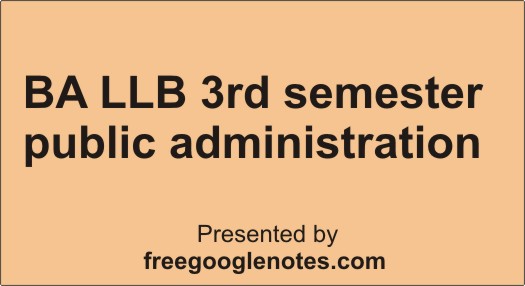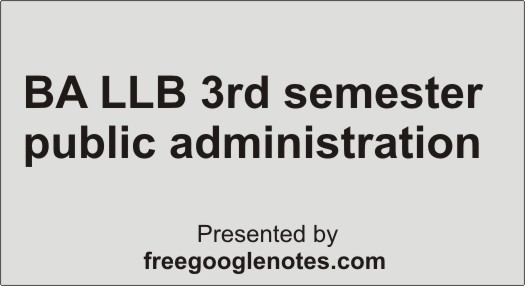Table of Contents
Ba Llb 2nd Semester Notes Pdf
hello Students,
In this post, you will read International Relation has been written according to the syllabus of BA LLB 1st year, 2nd semester.
Q. What is International Politics? Explain the difference between International relations and Politics. Discuss the scope or International politics.(BA LLB)
Ans. The term ‘politics’ connotes the people have wants and needs. To satisfy the wants people to come into contact with one another Naturally, the common needs and wants to give birth to ropes. Since all men may not have an identical interest, conflict becomes necessary. Group do certain activities and follow certain policies to fulfil their interests. The interactions of the groups to fulfil their interests to their maximum extent is politics. Thus the term politics involves three factors
(i) Interest, (ii) Conflict, and (iii) Power. This have been well explained by Quincy Wright that politics is “the art of influencing, manipulating or controlling major groups so as to advance the purposes of some against the opposition of others.”
As in politics, so in international politics, there are sovereign states whose interests are not identical. These interests of the sovereign states are called the ‘national interest’. The sovereign states, in order to achieve their interest, come into conflict with one another and as a means to achieve the ends, power is generally used. Thus, international politics is that aspect of interactions and relations of sovereign states in which the element of conflict or interest is present.
Definition: As has been said, International Politics is the study of conflicts and interactions common states. In the words of Mongenthau, “International politics is the struggle for, and use of, power among nations.” The term power denotes the quantity of influence which the nations exert on the minds and actions of the people of one another. Sprout and Sprout also defined International Politics are those aspects of the interactions and relations of independent political communities in which some element of opposition, resistance and conflict of purpose or interest is present. According to Thompson. ‘International Politics is the study of rivalry among nations and the conditions and institutions which ameliorate or exacerbate these relationships. Hartmann links that International Relations, as a field of study is focused upon the processes by which state adjust their national interest to those of other states.” Padelford and Lincoln define it as “the interactions of state polices within he changing patterns of power relationships.” Palmer and Perkins opine that International politics is essentially concerned with the state system. With the assistance of this definition it can be deduced that International politics is a process in which nations try to protect their incompatible interest by means of power.

International Relations and International Politics : many a writes have shown their inability in drawing a line of demarcation between international relations and international politics. Kenneth Thompson and Mongenthau consider international politics as an inalienable part of international relations. This superfluous resemblance does not make international politics the core of international relations. Both are different for each other as shown below:
(a)International relations included all kinds of relations i.e. political; economics, cultural, geographical legal and non-official, As Harold and Margaret Sprout say that all human behaviour on the one side of a national boundary affecting the human behaviour on the other side of the country, is termed as relations. International politics included only that politics aspects action and reaction are the subjects of international politics. Thus it can be said the international politics is the political aspect of international relations.
(b) The methodology of the study of international relation is descriptive, while that of international politics is purely analytical. In international relations, the factors are studies chronologically, while in international politics the basis of the study is what, when and how of the present with a relationship between the past and future.
It is established beyond doubt the international politics derives its strength from international relations. The former uses the latter as the basis and subject matter of study and hence both are one and the same timing.
Modern international politics aims at the establishment of peace through the international organisation and international relations too are based on this very principle. Thus, concern for peace is the common denominator between international politics and international relations.
Scope of International Politics: in 1954 the UNESCO published and edited by C.A.W. Manning. In this book international politics recognised as an independent discipline. But the dissenting not be ignored. The dissenters regard international politics and international relations as merely a duplication of subject-matter. During the last twenty year the discipline has evolved all the traits of an independent study and it can be deduced from its progress that it is well on its way to becoming an independent academic discipline in foreseeable future. Most of the scholars of international. relations ascribe the following aspects in the study of this discipline:
(iii) National Power: International politics is a struggle for power among nations. Whatever the ultimate aims of international politics are, power is always its immediate aim. National power is the factor which gives a nation a capacity to pursue its national interest and at the same time, it makes the nation effective is international relations.
Some of the instruments are expressly used in peace times, while some are the instruments generally used in times of war.
(vi) Nationalism, Colonialism and Imperialism : Nationalism is the most significant factor of the modern state system. It has changed the classical nature of international politics and has been responsible for the shifting of interest from Europe to Asia and Africa.








